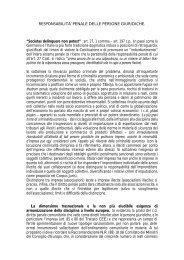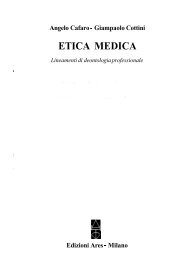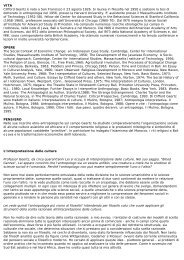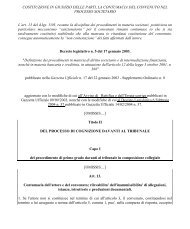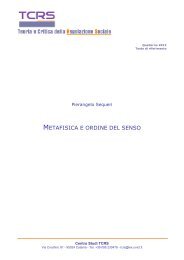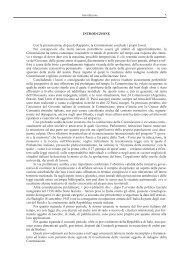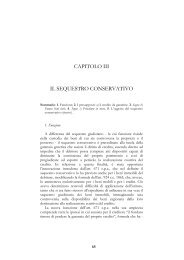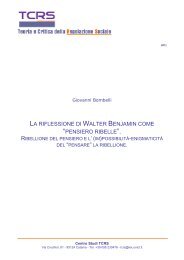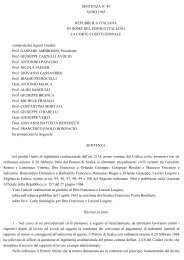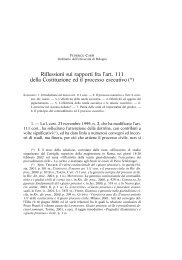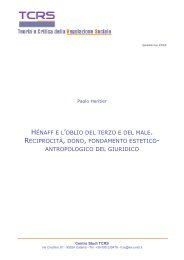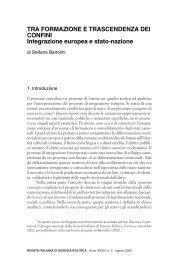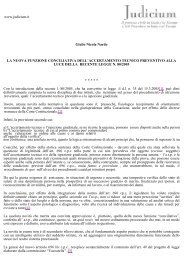FOGLI DI LAVORO per il Diritto internazionale 3 ... - Giurisprudenza
FOGLI DI LAVORO per il Diritto internazionale 3 ... - Giurisprudenza
FOGLI DI LAVORO per il Diritto internazionale 3 ... - Giurisprudenza
Create successful ePaper yourself
Turn your PDF publications into a flip-book with our unique Google optimized e-Paper software.
198<br />
<strong>FOGLI</strong> <strong>DI</strong> <strong>LAVORO</strong> <strong>per</strong> <strong>il</strong> <strong>Diritto</strong> <strong>internazionale</strong> 3/2008<br />
of governance as set out in Article 65 of the Basic Law, the<br />
German Government was both entitled and obliged to inform the<br />
parliament and public about the applicant associations' religious<br />
community. The Government and its members had the task of<br />
addressing topical issues that had a considerable impact on the<br />
public. They further pointed out that the statements had been<br />
made in reply to questions submitted to them by members of<br />
parliament and that the Government was obliged to reply to<br />
those questions.<br />
76. The Government further submitted that the contested<br />
statements had pursued the legitimate aim of protecting the<br />
health of their citizens and their rights and freedoms, especially<br />
human dignity, from the potential dangers which new religious<br />
communities could pose to these rights.<br />
77. As regarded the proportionality of the Government's<br />
action, they pointed out that the contested statements had been<br />
made at a time when the public had expected the Government to<br />
explain their policy towards the new religious groups. Given the<br />
situation at the time, the Government had been justified in<br />
suspecting that the activities of these new religious groups could<br />
endanger the health, rights and freedoms of others. On account<br />
of the high value of the legal interests to be protected, this<br />
suspicion had been sufficient to justify the contested statements.<br />
The Government further maintained that they had used the<br />
m<strong>il</strong>dest means at their disposal by restricting themselves to<br />
providing objective information – thus observing the principle<br />
of neutrality in religious matters – and had not in any way<br />
restricted the applicant associations' activities. Given the<br />
historical context and the widespread use of the contested terms,<br />
these statements did not contain any defamatory or distorting<br />
representation of the applicant associations. Wh<strong>il</strong>e employing<br />
the contested terms, the Government had made it clear that these<br />
were collective terms which the Government knew were being<br />
used in the underlying public debate and which it had not coined<br />
itself. They further maintained that, in the relevant <strong>per</strong>iod<br />
between 1979 and 1984, the contested terms were used as<br />
collective terms in the public debate to refer to all smaller<br />
religious communities and did not contain any value judgment.<br />
The Government did not rule out that the same terms might<br />
nowadays possibly be used in public debates in other States



